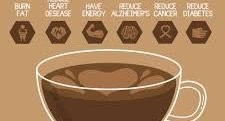It is estimated in the United Staes, there is 2.8 million multidrug-resistant bacterial infections ( AMR) per year. which cause 35,000 death annually costing 20 billion dollars on related-healthcare. COVID-19 is directing away resources from AMR, which is further complicated with antimicrobial drug shortage, low public awareness of ( AMR), insufficient pharmaceutical pipeline. Also, promote consumer and supplier awareness about food choices to be healthy boosting the immune system’s health, and avoid misuse of inappropriate use of antibiotics. In 2017, the FDA banned the use of antibiotics to promote growth in livestock.
AMR is real, for example, there is a 315% increase in erythromycin-resistant group A Streptococcus, 124% increase in drug-resistant Neisseria gonorrhea, Carbapenem-resistant Actinobactercausing pneumonia and urinary tract infections, Candida Auris, Vancomycin-resistant Enterococcus ( VRE), Methicillin-resistant Staphylococcus Aureus( MRSA)
COVID-19 pandemic. showed the urgent need to address (AMR) crisis, thus multi-level collaboration among agriculture, environment, finance, veterinary medicine, and leadership to confront this growing problem. COVID-19 pandemic could cause a substantial increase in HIV, Tuberculosis, and Malaria especially in low-income neighborhoods which could be aggravated by the suspension of preventative services and regular visits. Again, there should be a similar mitigation strategy in place for( AMR)
Disruption of services as a result of the COVID-19 pandemic along with AMR epidemic could potentially lead to a substantial increase in the number of additional deaths and years of life lost. The excessive antibiotic use during the pandemic is most likely to increase the AMR rate in the U.S and around the World. Virtual visits and increasing use of Tele Medicine will increase the antibiotics prescriptions because of the inability to perform a complete physical exam. This over-prescription of antibiotics for folks with mild disease, without pneumonia as they will get antibiotics prophylactically.
Limitation of the use of medical devices which would most likely increase the healthcare-associated infections. implement strict infection control, hygiene policy, make affordable diagnostic testing which can differentiate bacterial from viral infections to avoid unnecessary use of antibiotics. There has to be a strong focus on healthy nutrition to strengthen the immune system.
A strong immune system has a strong impact on the quality of life decreasing and controlling chronic diseases, lowers mortality, and reduces overall healthcare expenditure.
- Dr. Adel Eldin, MD, FACC, FACP, MBA, GGA
- Board Certified Cardiologist
- Founder, CEO
- Affordable Quality Healthcare Program
- www.prontocare.co
- Founder, CEO
- www.floridamedicaltourism.com
- Wesley Chapel, Florida
- Tel: 877-DR ELDIN








